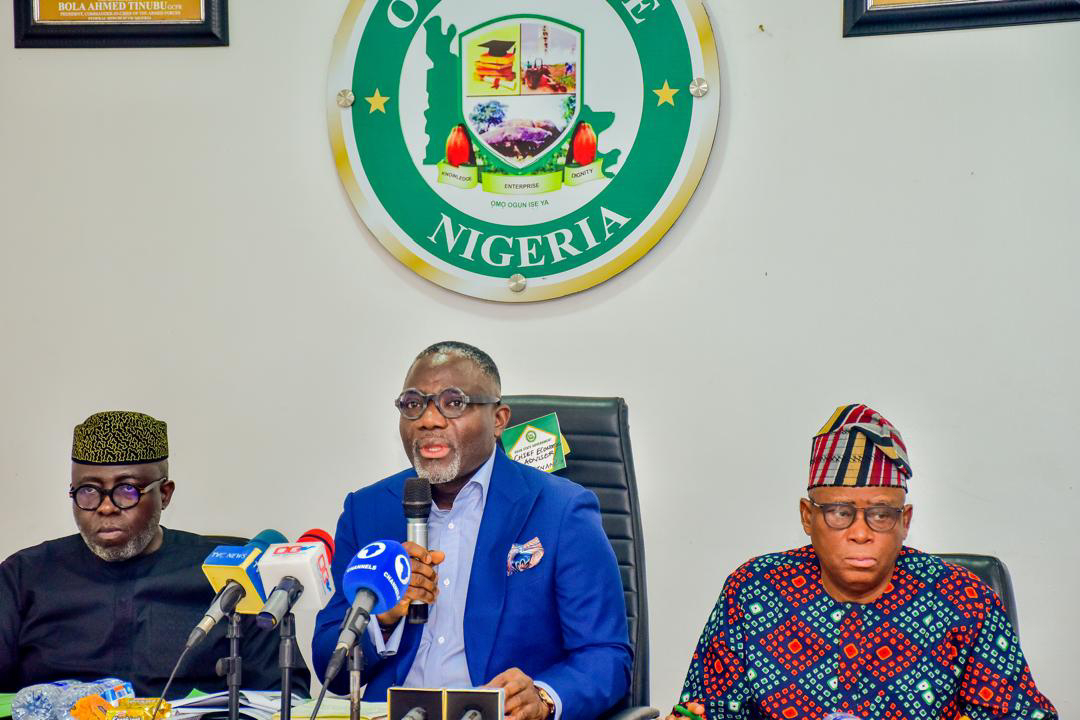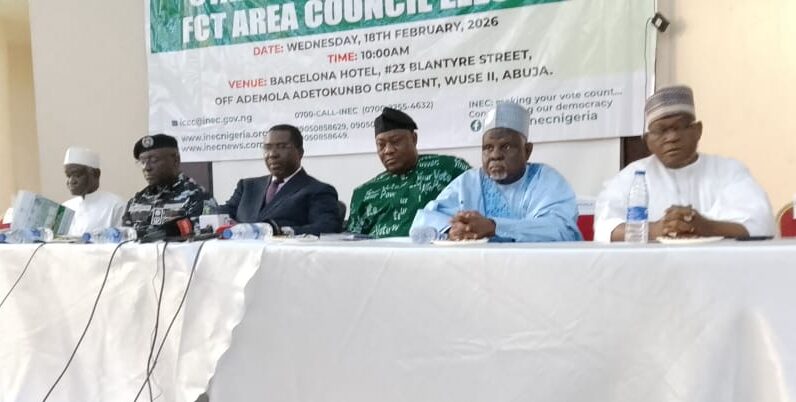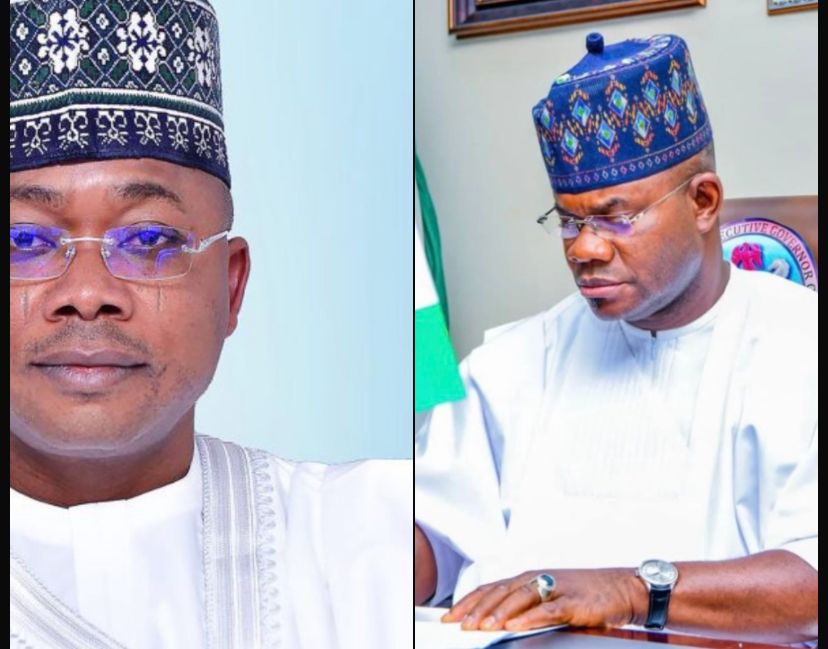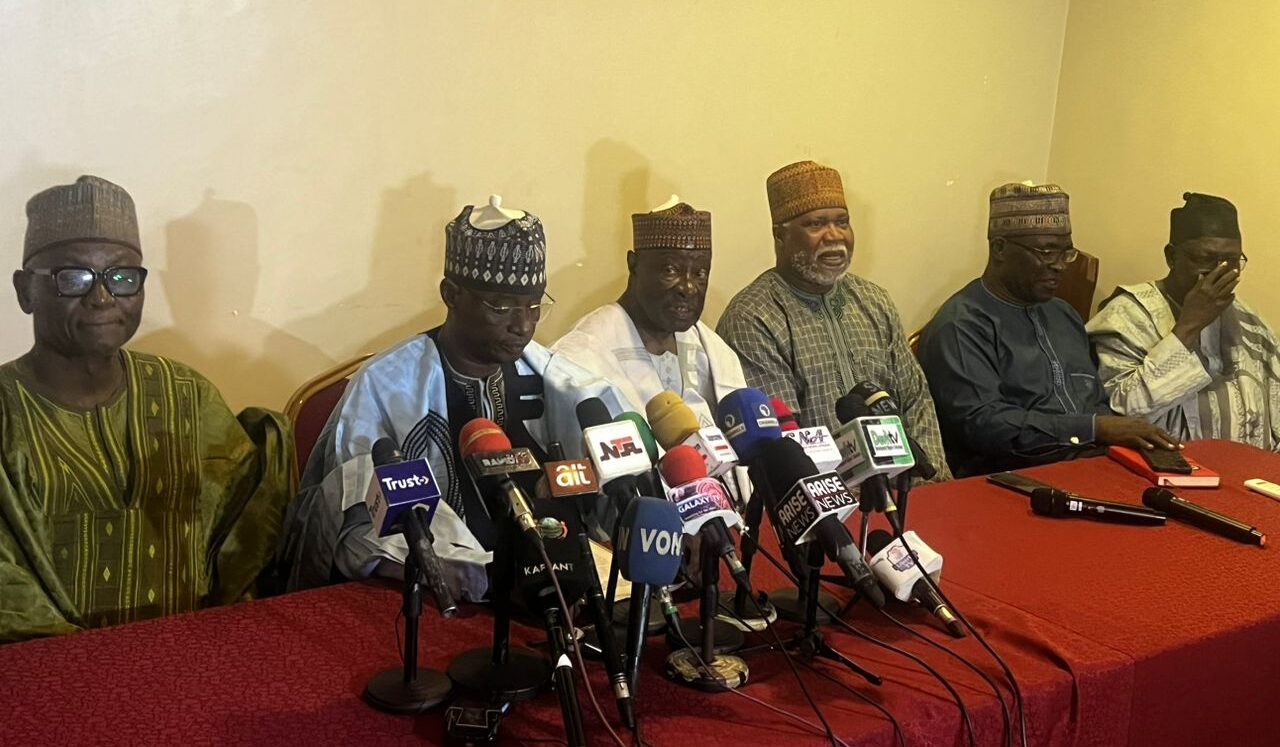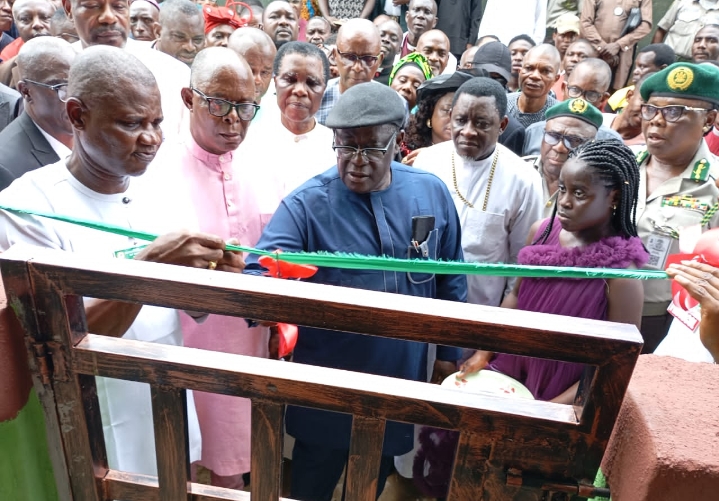By: Goodluck E. Adubazi, Abuja.
The Northern Elders Forum (NEF) has formally announced the maiden edition of the Northern Nigeria Investment and Industrialization Summit, scheduled to take place on September 29–30, 2025, in Abuja.
The announcement was made during an international press conference held at the Hawthorn Suites Hotel, Garki.
According to NEF spokesperson, Professor Abubakar Jika Jiddere, the summit—organized in collaboration with the 19 Northern Nigerian states and the New Nigeria Development Company (NNDC)—is a strategic platform aimed at transforming the economic fortunes of the region. He explained that the initiative has been under development for over 18 months and represents a “deliberate patriotic agenda” to reignite Northern Nigeria’s economic potential.
“This summit is not just another conference. It is the unveiling of a fresh vision… an economic call to action,” Jiddere said.
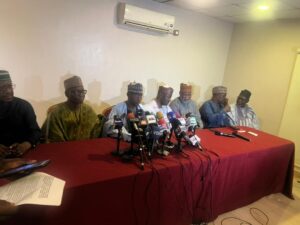
Why Now, and Why the NEF?
Addressing questions about the timing and leadership of the summit, Jiddere emphasized that NEF is taking the lead because “the moment is right to look forward with confidence, to build bridges of investment, and to shape a future worthy of our people.”
He clarified that the summit is non-political and focused purely on economic development, opportunities, and investment attraction, highlighting the region’s untapped potential.
Reflecting on the region’s historical contributions to Nigeria’s economy—particularly in the 1960s to 1980s—Professor Jiddere recalled the iconic groundnut pyramids, thriving cotton and livestock industries, and bold infrastructure projects of the past.
However, he acknowledged the impact of contemporary challenges such as insecurity and underinvestment, calling the current situation a “paradox of abundance.”
“This summit is about turning that paradox into opportunity,” he stated.
A Strategic Framework for Renewal
The summit will focus on five key economic pillars:
Agriculture – Leveraging vast arable land across the North.
Solid Minerals – Unlocking 44 mineral resources in over 500 locations.
Human Capital – Harnessing the energy of a youthful population.
Infrastructure – Integrating roads, railways, airports, and energy networks.
Industry – Strengthening existing enterprises and attracting new ones.
These pillars, according to Professor Jiddere, will be supported by three enablers: education, healthcare, and housing technology.
He stressed that Northern Nigeria is not landlocked but “land-linked,” strategically positioned to serve as a commercial hub for neighboring countries including Niger, Chad, Cameroon, Benin, Mali, and the Central African Republic. The region’s estimated population of 160 million, he added, represents a massive opportunity.
A Call to Action
In a passionate appeal, the NEF spokesperson challenged Nigerians to reflect on the region’s untapped promise:
“How can a land with vast rivers, fertile soils, oil, gas, and minerals still have so much untapped opportunity?” he asked.
He pointed to global icons from the region such as Aliko Dangote and Amina Mohammed as examples of Northern excellence and potential.
Beyond Northern Nigeria, Jiddere emphasized that the summit is not exclusive to the North. Rather, it is designed to benefit all of Nigeria and the wider African region.
“When Northern Nigeria rises, Nigeria rises. When Nigeria rises, Africa rises,” he declared.
In conclusion, Professor Jiddere called on all stakeholders—including government, investors, the youth, and international partners—to seize the opportunity.
“This summit is that torch. Let it shine with possibility. Let it inspire hope,” he said. “Northern Nigeria is a partner in progress—a region of promise, opportunity, and resilience.”
Attendees
The NEF international press conference was attended by NEF Chairman, Ambassador Al-Amin Al-Daggash (Rtd., CFR); Prof. D. D. Sheni (OON), Director-General, NEF; Prof. Abubakar N. Jika; Prof. Steve Ugbah, Director of Economic Planning; Rev. Bitrus Dangiwa, Director of Interfaith; Mal. Aminu Anas, Director of Programmes and Planning; and Alh. Salisu Mohammed, Deputy Director-General.



